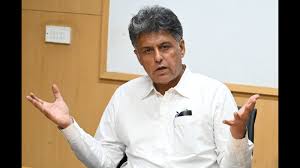New Delhi, February 13, 2025: Congress MP Manish Tewari on Thursday criticized the Income Tax Bill, 2025, arguing that despite Union Finance Minister Nirmala Sitharaman’s claims of simplification, the proposed legislation is more complex than the existing tax framework. He pointed out that while the current Income Tax Act, 1961, has 296 sections, the new bill expands to over 500 sections. Additionally, the previous law contained five schedules, whereas the new bill includes 14, further complicating the tax structure instead of streamlining it.
The government has defended the bill, emphasizing that it is designed to reduce litigation, simplify language, and improve taxpayer compliance. The Union Cabinet cleared the bill last week, and it is set to be introduced in the Lok Sabha today. The Centre has indicated that the legislation will be referred to a Select Committee for further scrutiny before any final decisions are made. Sitharaman has reiterated that the government’s approach is to ensure detailed consultations before implementation. She explained that after committee recommendations, the Cabinet would review and decide on necessary amendments before the bill is enacted.
The government’s push for a new tax law stems from a commitment made in the July 2024 Budget to modernize and simplify the outdated Income-tax Act, 1961. Key objectives include reducing disputes, making tax laws clearer, and easing compliance for taxpayers. Sitharaman has previously highlighted various taxpayer-friendly reforms introduced over the past decade, such as faceless assessment, the taxpayer charter, faster refunds, self-assessment, and the Vivad Se Vishwas dispute resolution scheme. In her budget speech on February 1, she reaffirmed the tax department’s commitment to a “trust-first, scrutinize-later” approach and announced the introduction of the new tax bill.
With opposition concerns over the bill’s complexity, the upcoming parliamentary debates and committee discussions will play a crucial role in determining whether modifications are made before the bill becomes law. The government’s plan to send the bill for committee review suggests a willingness to consider refinements before finalizing its implementation.

